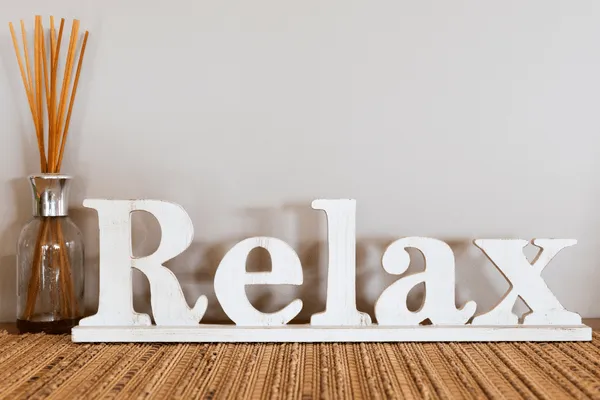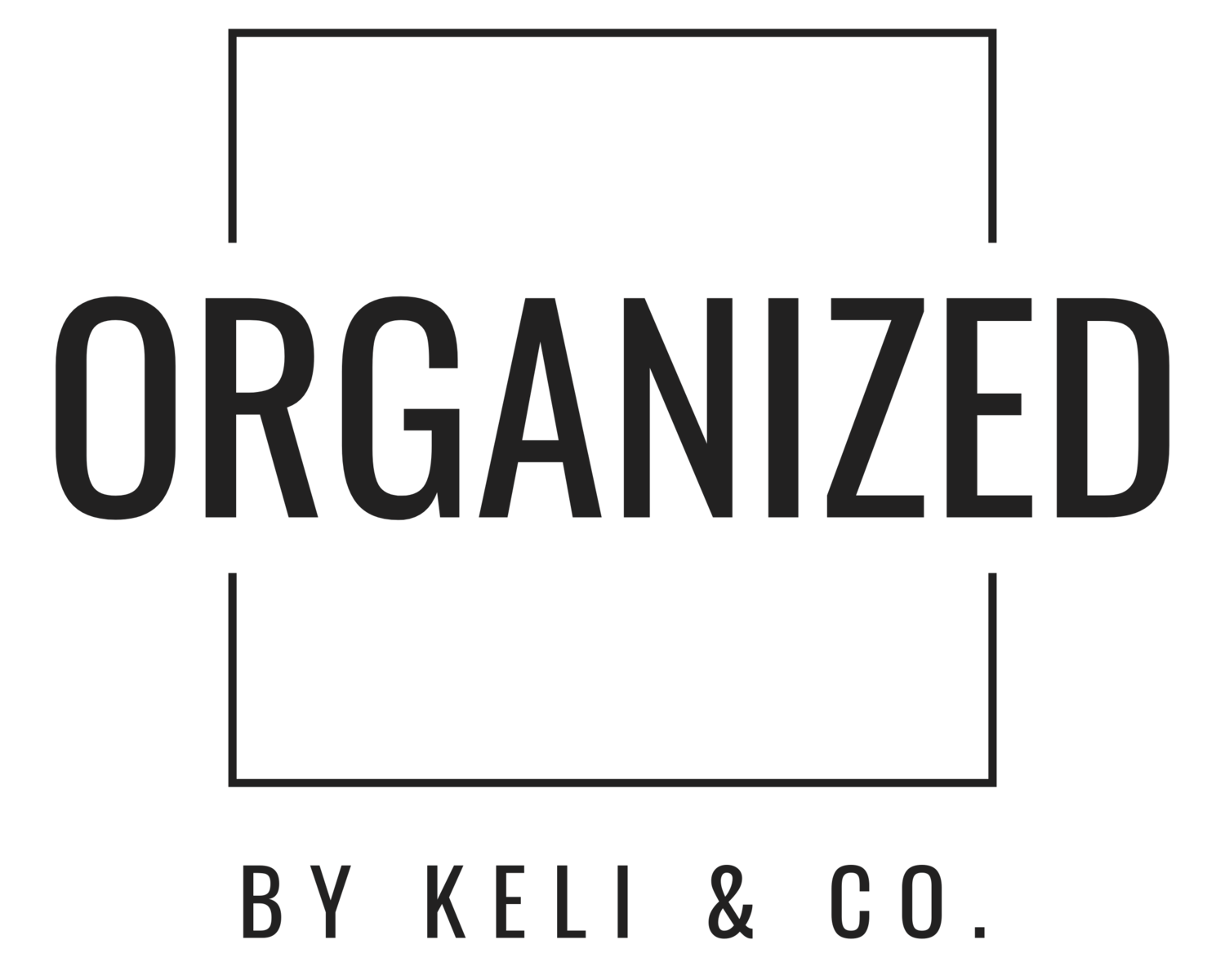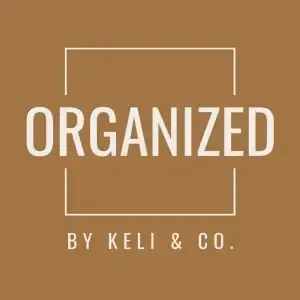Move In and Move out with Life
Matter Most
Our professional organizers can manage and transition so you can focus on what matter most
Save Energy
Save Time
Save your Sanity
Move In and Move out with Life
Matter Most
Our professional organizers can manage and transition so you can focus on what matter most
Save Energy
Save Time
Save your Sanity
Move In and Move out with Life
Matter Most
Our professional organizers can manage and transition so you can focus on what matter most
Save Energy
Save Time
Save your Sanity
Move In and Move out with Life
Matter Most
Our professional organizers can manage and transition so you can focus on what matter most
Save Energy
Save Time
Save your Sanity
KELI & CO
WELCOME TO THE BLOG

Organized For ADHD: Simple Tips To Add Structure To Your Spaces
Easy-to-Follow Solutions to Minimize Perfectionism and Maximize Productivity
The biggest hurdle for the ADHD brain: perfectionism. It has taken me years to understand progress over perfection in many areas of my life. I’ve struggled with perfectionism for nearly all of my life. If I can’t have something perfect, I don’t want it at all.

This frustrating and brilliant side of my brain is my greatest asset and greatest weakness. It has given me the tenacity to pursue some of the highest achievements of my life. However, it can also be frustrating and overwhelming when I don’t hit that mark.
Love Structure, Hate Routine
One of the biggest struggles (for adults especially) with ADHD is creating a system without it feeling too much like a routine. Routines are undoubtedly necessary for neurodivergents as much as they are for neurotypicals. Creating structure for those with ADHD looks different.
The focus on structure for those with an ADHD brain should include optimizing for
Time blindness
Working memory struggles
Combining those two concepts with stimulating activities that support dopamine dysregulation can help create a framework for your structure.
Thinking Beyond the To-Do List
When we help people organize their homes efficiently, we must consider who they are and what they struggle to maintain. At Organized by Keli & Co, we don’t have a recipe or prescription we follow for how people should live an organized life. We are here to meet people where they are and help create order that makes sense with your lifestyle and capabilities.

When it comes to having ADHD, it means you need to have a solid structure to maintain an orderly house. Here are some easy-to-follow solutions to help your neurodivergent brain understand and create a system that works for you.
Pick the Right time of Day
Not everyone is a morning person. Many ADHD people are not morning people. If you work through things better at night (like many creatives and neurodivergent people), use that time to get organized. Be willing to try different times of the day to figure out your peak attention moments.
Ditch the Trash
It’s easy to leave things lying around and forget about them–especially with ADHD. Over time, those things can pile up and feel overwhelming to get rid of. When you start your organizing process, start here.
Grab a trash bag and clear all the garbage and recycling out of the way. You’ll be amazed at how less cluttered your space looks.
Practical Solutions are Best
For a neurodivergent mind, Pinterest-perfect pantries and closets may feel overwhelming. Not everyone is going to want (or need) a color-coded home. Focus on practical solutions where you have the items you use and love in your home and give those items a proper place. Here is another article about designing an ADHD home with additional tips you may find helpful!

Set Small, Achievable Goals
Don’t start with the most cluttered space or decide to organize your entire DVD collection. Doing this can quickly become overstimulating and overwhelming. Break down your organizing tasks into small pieces and keep your focus on one at a time.
Remember, tiny victories are victories. If tackling an entire dresser feels daunting, and you are ready to quit before you even begin, do a single drawer. You can always break and come back to it later.
Create Positive Associations
Have you ever found a task challenging when you don’t want to do it? Or, have you found yourself avoiding a task because it feels too difficult to accomplish? Creating positive associations will help keep you motivated to get through organizing.
When I did my big business planning session and took a “mini-retreat” to organize my thoughts, I had to find a way to push through that difficult task. The materials I chose–like giant sticky pads and colorful writing utensils–made me happy and motivated to complete this massive assignment I had given myself.
You can do the same when tackling your organizing tasks. Throw a favorite podcast on. Create a playlist of your favorite songs. Make your favorite beverage or snack to kickstart your organizing. Whatever positive association you can make to help you achieve your goals, go for it.
Have a Physical Roadmap
Digital disorganization is no joke, and sometimes with ADHD, intangible things are hard to keep organized. A physical piece of paper or sticky notes with your tidy tasks will help you maintain the organization you invested so much time in.
A doc on your computer can be closed or forgotten. But having a sheet or two on your fridge, stuck to a corkboard, or on your desk in plain sight will help you remember and take action.
Monotask
Have you heard about monotasking? Some people thrive when they are multitasking. However, the ADHD brain gets overwhelmed and panicky when too many tasks are bombarding it, and then (typically) anxiety sets in, and nothing gets accomplished.
When you monotask, and focus on one task at a time, you can help soothe the anxiety that comes with the constant need to multitask. While monotasking may be hard at first, it will help you stay focused and feel in control of your actions.
When in Doubt, Hire it Out!
We all need a little help sometimes. It is okay to ask for that help. Let me remind you that organization is a skill and not some inherent ability. You aren’t either organized or disorganized. You simply lack a clear roadmap of how to get from point A to point B.

Hiring a professional organizer in Denver, like Organized by Keli & Co, will help you save time and so much anxiety. Whether you hire out the entire project or just a space at a time, our team can help pave the way for simple, maintainable organizing systems in your home.
As a person who lives with ADHD daily, I know the challenges that neurodivergent individuals face within their homes. With firsthand experience, I help make sense of your disorganization and give you the tools to live a clutter-free life.
Remember: Tiny Victories Are Still Victories
I know, I said this once already, but it is important. Three tasks completed is not 50 tasks, but it is also not 0. An organized bookshelf is not an organized bookcase, but it is not a disorganized bookshelf. If you need to take small steps toward a better life, slow and steady will still get you there faster than standing still and hoping for something to happen.
If you want to find more about the ways Organized by Keli & Co can help your ADHD brain get organized, check out our service offerings or reach out to us and schedule a complimentary consultation.
As a fellow neurodivergent, I am happy to answer any of your questions or concerns about getting and staying organized. I have a library of tips and tricks to help you feel in control of your clutter and happier in your home. Let’s chat about it!

Organized For ADHD: Simple Tips To Add Structure To Your Spaces
Easy-to-Follow Solutions to Minimize Perfectionism and Maximize Productivity
The biggest hurdle for the ADHD brain: perfectionism. It has taken me years to understand progress over perfection in many areas of my life. I’ve struggled with perfectionism for nearly all of my life. If I can’t have something perfect, I don’t want it at all.

This frustrating and brilliant side of my brain is my greatest asset and greatest weakness. It has given me the tenacity to pursue some of the highest achievements of my life. However, it can also be frustrating and overwhelming when I don’t hit that mark.
Love Structure, Hate Routine
One of the biggest struggles (for adults especially) with ADHD is creating a system without it feeling too much like a routine. Routines are undoubtedly necessary for neurodivergents as much as they are for neurotypicals. Creating structure for those with ADHD looks different.
The focus on structure for those with an ADHD brain should include optimizing for
Time blindness
Working memory struggles
Combining those two concepts with stimulating activities that support dopamine dysregulation can help create a framework for your structure.
Thinking Beyond the To-Do List
When we help people organize their homes efficiently, we must consider who they are and what they struggle to maintain. At Organized by Keli & Co, we don’t have a recipe or prescription we follow for how people should live an organized life. We are here to meet people where they are and help create order that makes sense with your lifestyle and capabilities.

When it comes to having ADHD, it means you need to have a solid structure to maintain an orderly house. Here are some easy-to-follow solutions to help your neurodivergent brain understand and create a system that works for you.
Pick the Right time of Day
Not everyone is a morning person. Many ADHD people are not morning people. If you work through things better at night (like many creatives and neurodivergent people), use that time to get organized. Be willing to try different times of the day to figure out your peak attention moments.
Ditch the Trash
It’s easy to leave things lying around and forget about them–especially with ADHD. Over time, those things can pile up and feel overwhelming to get rid of. When you start your organizing process, start here.
Grab a trash bag and clear all the garbage and recycling out of the way. You’ll be amazed at how less cluttered your space looks.
Practical Solutions are Best
For a neurodivergent mind, Pinterest-perfect pantries and closets may feel overwhelming. Not everyone is going to want (or need) a color-coded home. Focus on practical solutions where you have the items you use and love in your home and give those items a proper place. Here is another article about designing an ADHD home with additional tips you may find helpful!

Set Small, Achievable Goals
Don’t start with the most cluttered space or decide to organize your entire DVD collection. Doing this can quickly become overstimulating and overwhelming. Break down your organizing tasks into small pieces and keep your focus on one at a time.
Remember, tiny victories are victories. If tackling an entire dresser feels daunting, and you are ready to quit before you even begin, do a single drawer. You can always break and come back to it later.
Create Positive Associations
Have you ever found a task challenging when you don’t want to do it? Or, have you found yourself avoiding a task because it feels too difficult to accomplish? Creating positive associations will help keep you motivated to get through organizing.
When I did my big business planning session and took a “mini-retreat” to organize my thoughts, I had to find a way to push through that difficult task. The materials I chose–like giant sticky pads and colorful writing utensils–made me happy and motivated to complete this massive assignment I had given myself.
You can do the same when tackling your organizing tasks. Throw a favorite podcast on. Create a playlist of your favorite songs. Make your favorite beverage or snack to kickstart your organizing. Whatever positive association you can make to help you achieve your goals, go for it.
Have a Physical Roadmap
Digital disorganization is no joke, and sometimes with ADHD, intangible things are hard to keep organized. A physical piece of paper or sticky notes with your tidy tasks will help you maintain the organization you invested so much time in.
A doc on your computer can be closed or forgotten. But having a sheet or two on your fridge, stuck to a corkboard, or on your desk in plain sight will help you remember and take action.
Monotask
Have you heard about monotasking? Some people thrive when they are multitasking. However, the ADHD brain gets overwhelmed and panicky when too many tasks are bombarding it, and then (typically) anxiety sets in, and nothing gets accomplished.
When you monotask, and focus on one task at a time, you can help soothe the anxiety that comes with the constant need to multitask. While monotasking may be hard at first, it will help you stay focused and feel in control of your actions.
When in Doubt, Hire it Out!
We all need a little help sometimes. It is okay to ask for that help. Let me remind you that organization is a skill and not some inherent ability. You aren’t either organized or disorganized. You simply lack a clear roadmap of how to get from point A to point B.

Hiring a professional organizer in Denver, like Organized by Keli & Co, will help you save time and so much anxiety. Whether you hire out the entire project or just a space at a time, our team can help pave the way for simple, maintainable organizing systems in your home.
As a person who lives with ADHD daily, I know the challenges that neurodivergent individuals face within their homes. With firsthand experience, I help make sense of your disorganization and give you the tools to live a clutter-free life.
Remember: Tiny Victories Are Still Victories
I know, I said this once already, but it is important. Three tasks completed is not 50 tasks, but it is also not 0. An organized bookshelf is not an organized bookcase, but it is not a disorganized bookshelf. If you need to take small steps toward a better life, slow and steady will still get you there faster than standing still and hoping for something to happen.
If you want to find more about the ways Organized by Keli & Co can help your ADHD brain get organized, check out our service offerings or reach out to us and schedule a complimentary consultation.
As a fellow neurodivergent, I am happy to answer any of your questions or concerns about getting and staying organized. I have a library of tips and tricks to help you feel in control of your clutter and happier in your home. Let’s chat about it!



